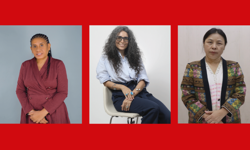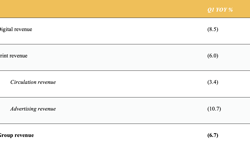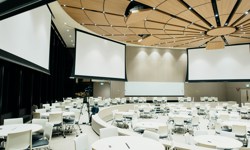“The arrest of media professionals for simply doing their job can never be justified, while punishing reporting into an issue of such clear public interest is a devastating blow to your country’s democratic aspirations,” the global organisations said in a letter to Myanmar President, Thein Sein.
The full letter can be read here.
Yangon-based Unity Journal’s 25th January 2014 cover story detailed allegations of a secret chemical weapons factory located in Pauk Township, Magwe Division, in Myanmar’s central region. The report claims Chinese technicians were frequently seen at the facility and that its workers told reporters they were producing chemical weapons. Senior Myanmar military figures were also said to have frequently visited the facility.
The five men were originally detained between the 31st January and 1st February and initially held in an undisclosed location. According to reports from the trial, a Pakokku district judge ruled that the CEO, Tint San, along with journalists Lu Maw Naing (author of the report), Yarzar Oo, Paing Thet Kyaw and Sithu Soe were found guilty of “violating the safety and interests of the state” and of “damaging its international reputation.”
Unity Journal’s coverage alleged that the government had spent millions of Kyat in public money to build the factory – said to be Myanmar’s largest chemical weapons establishment – despite significant international pressure to reduce military spending. The story also detailed accounts from local farmers who claimed to have had land seized for the building of the facility.
The five defendants were charged retroactively under section 25 (a) of the Media Law, enacted in 14 March 2014, almost two months after the publication of the original story. The Minister for Home Affairs reportedly also gave permission for the five to be charged under Section 3 (1) (a)/9 of the Official Secrets Act.
In its letter to President Sein, WAN-IFRA raised international concerns over a perceived political element to the verdict as evidence of further backsliding in press freedoms over recent months. “We are deeply concerned over allegations of political involvement in the trial as well as the chilling effect such a severe sentence transmits to the wider journalistic community in Myanmar - with an increase in self-censorship leading to a reluctance to cover stories of vital public interest the likely outcome.”
The sentencing of the five journalists follows the imprisonment of Eleven Media Group reporter Ma Khine in December 2013, as well as reports of increasing interference by the security services in the independence of private news outlets.
“The decision to curtail the freedom of the press by condemning journalists to lengthy prison sentences is a potent reminder that Myanmar is failing to deliver on its commitment to a genuinely free press and wider promises of greater respect for human rights,” WAN-IFRA’s letter concluded.










